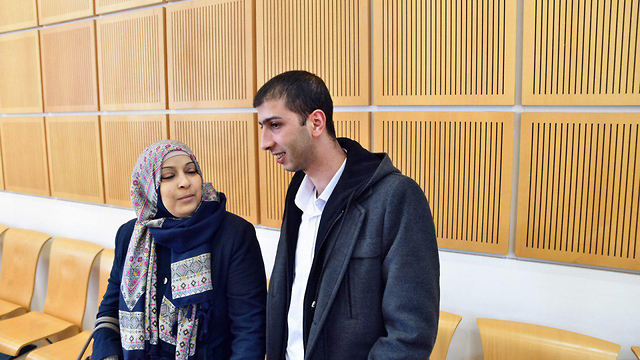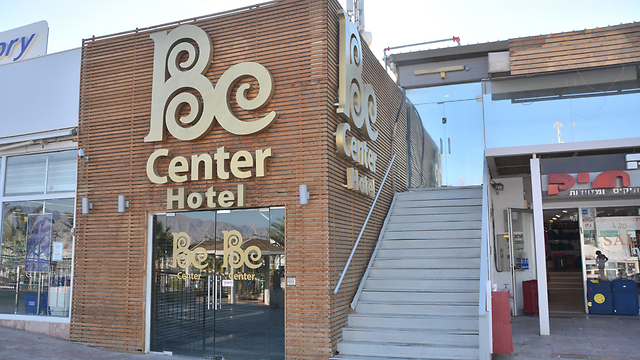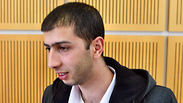
Prosecution moves forward on indicting alleged terrorist despite accomplice's acquittal
State Attorney's Office seeks to indictment east Jerusalem resident for planning to carry out Eilat terrorist attack despite the fact his alleged accomplice was acquitted months ago; prosecution wishes to change article of indictment, leave facts of charge unchanged.
The State Attorney's Office has decided to move forward with legal proceedings against Ashraf Salameh, 25, charging him with planning a terrorist attack in Eilat, despite the fact that the Be'er Sheva District Court acquitted his alleged partner in planning the attack several months ago while severely criticizing the police and Shin Bet's investigation.
The Southern District Attorney's Office filed a motion recently seeking to amend the indictment against Salameh, which previously charged him with conspiring to assist the enemy in wartime.
Prosecution wishes Salameh to be indicted for "revealing a decision to commit treason"—an offense not often cited but that nevertheless carries a penalty of ten years' imprisonment.
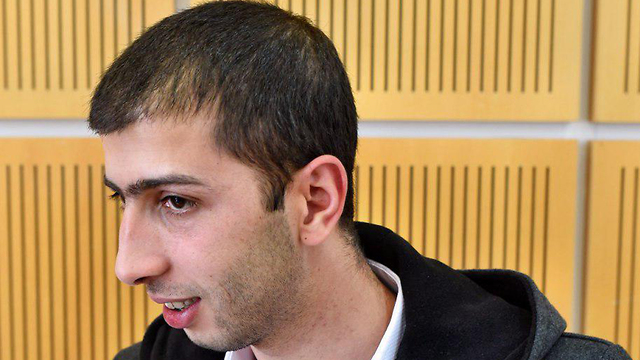
Salameh's attorneys claimed the chances of now convicting their client were low, adding that considering the fact Nimri had already been acquitted it would be impossible to convict Salameh, since it would leave the court deciding differently on the same case.
"It's a situation that according to past rulings, as a rule, should lead to an acquittal," Salameh's defense counsel said.
The State Attorney's Office, however, said Nimri's acquittal had no bearing—directly or indirectly—on Salameh's case.
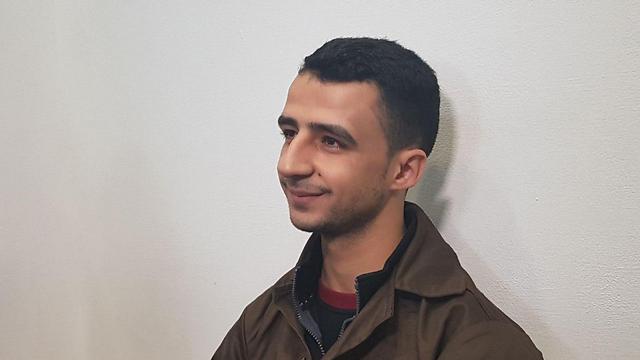
The district court nevertheless decided to free Salameh to custody in his parents' home. "The evidential erosion—or, more accurately, the significant reduction in the chances of conviction—are enough to strongly consider releasing him to house arrest," ruled Judge Daniel Ben-Tolila in the hearing.
Salameh had been in custody for the past two years. "Many months can still pass until a verdict is rendered," the judge decreed.
While the State Attorney's Office moved to change to article for which Salameh was being charged, it left the facts of the indictment unchanged. Salameh and Nimri met during the course of their work at hotels in Eilat, the indictment alleged, with the latter seeking to avenge the death of a childhood friend who attempted to carry out a stabbing attack in Jerusalem but was shot and killed.
According to the indictment, Nimri first suggested to commit a stabbing attack and kill a religious Jew. Salameh refused, claiming that they could get caught committing such an attack, which will make the effort meaningless in his eyes.
Salameh then suggested to plant explosives in one of the hotels in the city, a plan Nimri agreed to. The two settled on Eilat's Be Center since it was a relatively small hotel with few people and a low level of security.
The two conducted surveillance of the Be Center Hotel—also known as the Rio Hotel—from the outside, monitoring a group of religious Jews staying there. One of the defendants even searched online for tutorial videos on how to build bombs.
Salameh also arrived at the hotel in order to gather intelligence ahead of the attack. He pretended to be interested in renting out a room at the hotel for a long period of time, and on this pretense asked to see different rooms. One of the rooms that caught his eye, according to the indictment, was one located under the dining room.
Salameh asked the receptionist and the manager many questions that arose their suspicion, including how many entrances does the hotel have, what is the hotel's capacity, whether a group of religious Jews are expected at the hotel and so on.
The vigilant hotel employees then reported Salameh's suspicious questions to hotel management and security, which led to the arrest of the two and the thwarting of their plan.
Following Nimri's acquittal, the State Attorney's Office decided to no longer pursue accusing the two of planning to carry out the attack together, but still insisted that they spoke and were in contact with each other.
Prosecution's insistence on the latter part was born of the fact that Salameh's visit to the hotel indisputably took place—which left only to ascertain what his intentions were for the visit.
Nevertheless, Salameh's attorneys maintained that prosecution cannot move against Salameh after Nimri was acquitted. "I think it's a ridiculous notion," said one of his attorneys.










